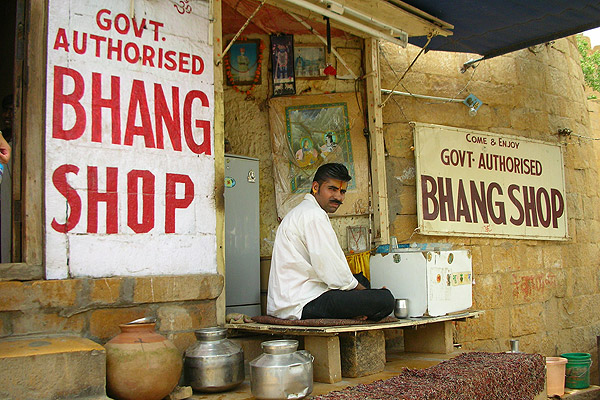
U.S. states would be free to decide whether to legalize marijuana without running afoul of federal law but would require purchasers to pay federal taxes on its sale under legislation being proposed by two Democratic lawmakers.
[snip]
One bill would end a federal ban on marijuana and give states jurisdiction over its use and regulate it in a similar way to alcohol sales, while the other would levy a federal tax, the congressmen said in a statement.
The reps pushing the bill are from Colorado and Oregon, of course.
The problem for states that want to legalize pot is that they can't be assured that the feds won't crack down on them. And the feds have been sending mixed messages. When Barack Obama began his presidency, he suggested that the federal government wouldn't meddle, but that hasn't always been the case:
With more than 100 raids on pot dispensaries during his first three years, Obama is now on pace to exceed Bush's record for medical-marijuana busts. "There's no question that Obama's the worst president on medical marijuana," says Rob Kampia, executive director of the Marijuana Policy Project. "He's gone from first to worst."
So states have been hesitant to move forward, much less actual businesses. The big money's going to stay on the sidelines, and it's worth remembering that when alcohol prohibition was repealed, big money was driving the issue.
Another big-money player, even if it's lost power in recent decades, is labor. And The New Republic's Molly Redden has a good piece on labor's role in the pot industry in California. The Obama administration was doing its thing on pot—cracking down on the medical-marijuana industry in California, after its more tolerant signaling went by the wayside—and that affected businesses. Unionized businesses:
A more sober cohort also joined the protest—officials from the United Food and Commercial Workers Local 5. The UFCW had been unionizing marijuana workers since 2010, when it organized the Lee-owned businesses that were now blocked off by fluttering caution tape. At the height of the UFCW’s efforts, more than 2,000 cannabis workers, most of who worked behind the counter selling medicinal marijuana in Western states, had signed a union contract. But federal raids have sent that figure nose-diving to 500 or so workers today. With the raid on Oaksterdam, not only had the federal government shuttered the most reputable marijuana business in the state; they had shuttered the largest union shop, of some 100 UFCW workers, in the entire cannabis industry.
In recent years we've become accustomed to constant hostility between management and unions. But as Redden points out, unions and marijuana management (for now, at least) have the same incentives, because they aren't powerful enough on their own to counter political pressure, and because the industry is small enough that growth is more critical than the usual union-management issues. It's an angle that hadn't occurred to me, because I hadn't realized that unions had made inroads in the young industry, and one for advocates in union strongholds to consider.
Photograph: Tom Maisey (CC by 2.0)



